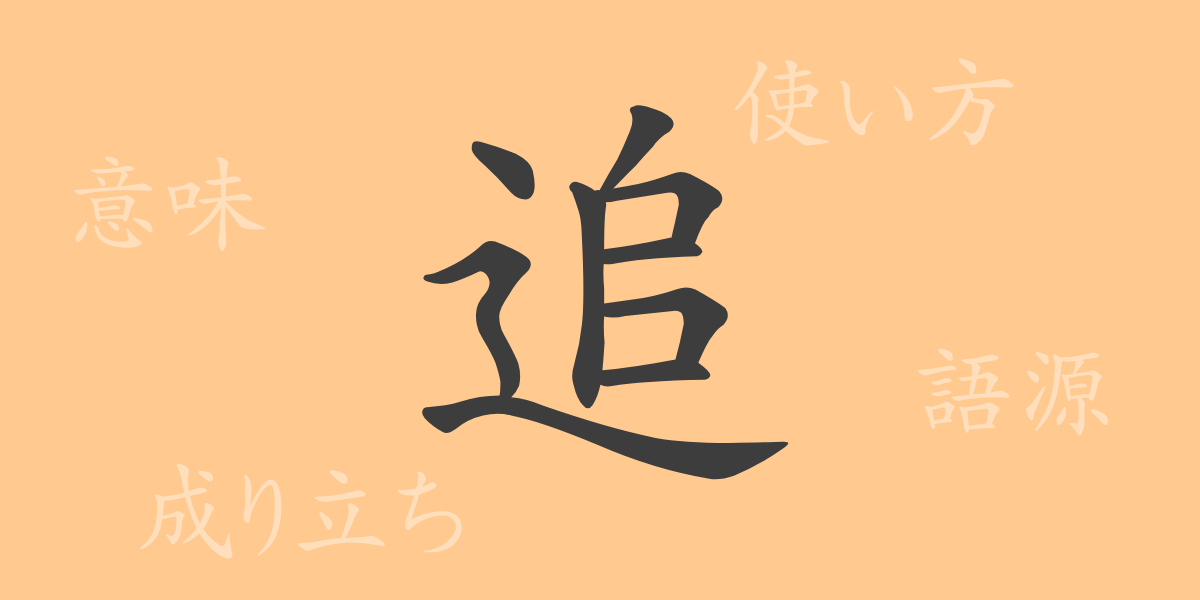The power of a single kanji character in Japanese, such as ‘追(ツイ)’, is deeply embedded in daily life, offering a rich means to express emotions and actions. This article explores the origins, meanings, pronunciations, and usages of ‘追’, extending to related idioms and phrases, thus unveiling the profound charm of this kanji.
Origins of ‘追(ツイ)’
Originating in ancient China, the kanji ‘追’ was pictographically designed to represent a person running, symbolizing the action of chasing something from behind. Over time, its form evolved to embody broader meanings such as pursuing or seeking, extending beyond its initial depiction.
Meaning and Usage of ‘追(ツイ)’
‘追’ conveys meanings like “to chase,” “to pursue,” and “to add.” In Japanese, it describes actions and states as well as abstract concepts. For instance, ‘追いかける’ refers to the act of chasing, while ‘追い求める’ denotes the pursuit of goals or dreams.
Pronunciation, Stroke Count, and Radical of ‘追(ツイ)’
The kanji ‘追’ is fascinating both in form and function:
- Pronunciation: The On’yomi is ‘ツイ’, and the Kun’yomi includes ‘おう’
- Stroke Count: ‘追’ consists of 9 strokes.
- Radical: Its radical is ‘辵(しんにょう)’, relating to movement.
Idioms, Phrases, and Proverbs Using ‘追(ツイ)’ and Their Meanings
Numerous idioms and phrases incorporate ‘追’, reflecting its versatility:
- 追い風(おいかぜ) – Represents a favorable situation or environment.
- 追い越し(おいこし) – The act of surpassing someone else.
- 追い求める(おいもとめる) – To fervently continue seeking something.
- 追い詰める(おいつめる) – To corner someone, worsening their situation.
- 追い込む(おいこむ) – To force into a specific state.
These expressions demonstrate the richness of Japanese, frequently appearing in everyday conversation and literature.
Conclusion on ‘追(ツイ)’
The kanji ‘追’, as indicated by its form, represents the act of chasing or the state of being chased, while also symbolizing the pursuit of desires and goals. Its use in Japanese is extensive, permeating through idioms and phrases, deeply integrating into our daily lives. Regardless of the context, ‘追’ brings a spirit of movement and pursuit to our language.

























